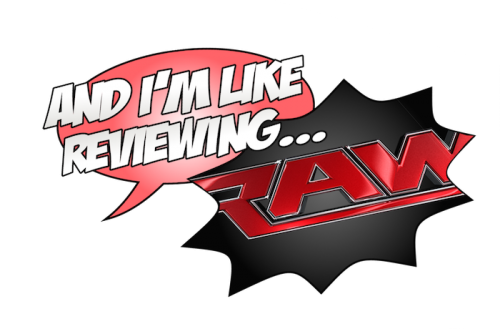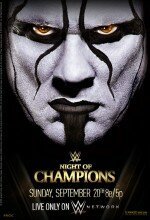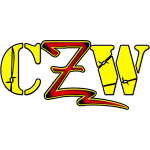Lucky Thirteen #2
Top 13 Years of the Past 2 Decades
Written by Mark Adam Haggerty
I can’t remember back to a time before I was a wrestling fan. I can recall being six-years-old and thumbing through my parents modest little library of movies, suddenly stumbling upon a set of black Disney-like big boxes that contained the first five Wrestlemanias. From that day I was hooked. I began tuning into WWF Superstars and WCW Saturday Night every single week, and by the spring of 1993 I was begging my parents to order Wrestlemania 9 on pay-per-view. Over the past 20 years I’ve had my share of favorite moments, but I often ask myself, what was the best year in professional wrestling? Maybe not best, but how about the most influential? Most impactful? Okay here it is: What was the Most Important Year since I Became a Fan? When other sites limit their lists to Top Ten, we take it a Step Further with the Lucky Thirteen—counting down the Top Years of the Past 2 Decades.

13. 2003
The list had to start somewhere and after cutting away seven years of nonsense I thought, what better place to begin than with 2003. Looking back I feel as though the year felt much bigger than it really was. Momentous occasions like Wrestlemania XIX and Stone Cold’s retirement drew considerable attention but it’s hard to isolate many other memorable moments. By this point Total Nonstop Action Wrestling and Ring of Honor were both open and doing business, although nowhere near the level of success that they’d each see within a few short years. WCW had been closed since 2001, so WWE was slowly filtering out the Turner-holdovers and rebranding wrestlers like Booker T and Rey Mysterio as WWE Superstars. Twenty-oh-Three was the year Bill Goldberg made his long-awaited debut on Monday Night Raw where he famously told Dwayne Johnson, “You’re next Rock!” In addition to a handful of interesting gimmicks and storylines scattered across the calendar, 2003 featured must-see-TV for anyone curious as to what lurked beneath the red and black mask of “The Devil’s Favorite Demon” Kane. While it may appear dull in hindsight, 2003 was a fun time featuring the sex and violence of the Attitude Era, mixed with the incredible in-ring action so many of us value today.

12. 2010
Twenty-Ten proved to be an auspicious time for all wrestling organizations. Wrestlemania 26 featured the final match in the venerable career of “The Heartbreak Kid” Shawn Michaels when he failed to defeat The Undertaker in Glendale. But as one man’s career ended, eight more were just getting started; the initial NXT program was a far cry from the extraordinary show we see each week on the WWE Network, but it did introduce the WWE Universe to Superstars such as Ryback, Wade Barrett, Darren Young, and even the future WWE World Heavyweight Champion Daniel Bryan. Twenty-Ten was the year in which the unimaginable happened when Bret “The Hitman” Hart made his return to WWE television after a thirteen year hiatus. But 2010 was big for the competition as well. Not only were independent promotions the world-over hitting their stride due to the added exposure brought-on by social media, but TNA was enjoying one of its most visible years to date thanks to signing Hulk Hogan, Eric Bischoff and a number of other established talents. In addition to inflating their roster, TNA made several changes to their product; they would begin to implement a traditional four-sided ring, and even attempted to compete live on Monday’s with WWE Raw. The year 2010 was an exciting time for wrestling fans across the planet, and is the most modern year on my countdown.

11. 2007
It’s true that 2007 can hardly be considered a great year for professional wrestling, let alone the WWE. For a while it seemed that active wrestlers appeared on Nancy Grace more than they ever did on Raw or Smackdown. But if I’m here to countdown the most important years in wrestling, this certainly had its share of newsworthy events. In the summer of 2007, the WWE suspended more than half of its active roster in response to a litany of wellness violations for a variety of substances, most notably Human Growth Hormone. This year was historic for being the official end of “The Ruthless Aggression Era”—a period of time significant for exposing younger talent and transitioning the product out of the overtly controversial Attitude Era. In 2007 TNA expanded its flagship show IMPACT to two hours and embarked on what would be a defining age for the promotion. One of my favorite events in history happened in 2007, “The King of Europe Cup.” The ‘Cup was a one-off event that took place over a two day period in the United Kingdom. A must-watch event that is readily available on YouTube and features well-known workers such as Adrian Neville, Sami Zayn, Matt Sydal, Davey Richards and a man who won the ROH World title in 2007—Nigel McGuinness. Sadly it’s safe to say the most infamous moments of 2007 occurred between June 22nd and June 25th as the world became aware of the chilling circumstances surrounding Nancy, Daniel, and of course “The Crippler” Chris Benoit. Unfortunately for all of the positives, 2007 will forever be marred by the heinous actions of a troubled man that led to irreparable changes across the industry and what has been dubbed, “The PG Era.”

10. 2006
It would appear as though 2006 was the last year representing any semblance of what was once regarded as a pop culture phenomenon. The ECW One Night Stand pay-per-view the previous year was such a success that WWE officials opted to resurrect Extreme Championship Wrestling complete with a one-hour timeslot on the Sci-Fi Channel. Edge and Rey Mysterio each made history in 2006 by becoming world champion; first Edge at New Years’ Revolution and then Rey at Wrestlemania 22 in Chicago. Poised to be a contributing factor in the ‘New ECW’, former champion Kurt Angle shocked the world in 2006 when he signed with TNA Wrestling. This year was famous for launching the career of current TNA Champion Bobby Lashley, as well as helping to define that of former Ring of Honor World Champion CM Punk. There were over a dozen debuts throughout the year due to ECW on Sci-Fi and Smackdown’s “New Superstar Initiative.” In Ring of Honor, the world title picture was dominated by Bryan Danielson who secured his spot atop the card from September 2005 until December 2006. In addition to WWE and TNA, MTV delivered an over the top unreal wrestling experience known as “Wrestling Society X.” WSX only lasted one short season but familiarized fans with future names such as Matt Sydal and reintroduced established stars like Sean Waltman and Vampiro. Twenty-oh-Six was a great year for good storytelling that included Vince McMahon’s rivalry with Shawn Michaels, Booker T becoming King Booker, and the continuing drama between Edge and John Cena. Rounding out the top ten, 2006 was an enjoyable year without much in the way of defining moments but never short on excitement.

9. 2000
When the new millennium dawned on the world of professional wrestling, so too did a number of landmark milestones and controversial occurrences. WCW released the unsuccessful “Ready 2 Rumble,” starring a variety of World Championship Wrestling athletes and the man who would soon become WCW Champion—David Arquette. Not only was 2000 the year all WCW titles would be stripped and reassigned, it was also the year in which the World Championship was devalued and strapped to a B-list Hollywood celebrity. But not all was bad in the world of sports and entertainment as 2000 marked the first time Dwayne “The Rock” Johnson hosted Saturday Night Live, which he did to rave reviews. While Eric Bischoff returned to WCW, a new set of “Radicalz” debuted in the WWF; Chris Benoit, Eddie Guerrero, Perry Saturn and Dean Malenko all jumped ship and began appearing on WWF TV in the early months of the new millennium. The Year Two-Thousand was a defining era for the Undertaker who chose this year to swap his demonic demeanor for the apparel of the “American Badass.” Hulk Hogan would say his final goodbye to his WCW fans thanks to a scenario gone wrong involving the Hulkster, Jeff Jarrett, and head-writer Vince Russo. An exciting year for wrestling of course with Kurt Angle capturing his first of many world titles, but perhaps the biggest thing to happen in 2000 was the debut of Vince McMahon’s now defunct football league—The XFL. Whether you’re a football fan or an admirer of the “Scream” film franchise, 2000 had something for everybody to get excited about.

8. 2005
If ever a year signaled things to come it was 2005. For fans of the WWE, 2005 was the year Monday Night Raw returned home to the USA Network after a five year run on Spike TV. Two first-time world champions were crowned at Wrestlemania—John Cena and Dave Batista. But TNA had its own share of successes in 2005: the company made its highly anticipated debut on Spike TV; Christopher Daniels, AJ Styles, and Samoa Joe had the only 5-Star Triple Threat Match in history; and Christian Cage signed a deal, opening the gates to a deluge of ex-WWE Superstars. ECW was in the midst of a resurrection that would culminate in 2006, but 2005 was the year the WWE hosted the first “ECW One Night Stand,” in New York City. On the independent scene, a former backyard wrestler named Phil Brooks won the ROH World Heavyweight Championship from the highly decorated Austin Aries, thus placing CM Punk on WWE’s radar. Later that year another future WWE Champion would capture the ROH World Title and hold it for over four hundred days—“The American Dragon” Bryan Danielson. Back in the WWE, six daring individuals were getting ready to introduce the world to “Money in the Bank,” and later that year Shawn Michaels faced Hulk Hogan for the first time ever at Summerslam. Chris Jericho was fired by Eric Bischoff and then Bischoff himself was released resulting in Eric leaving the arena in the back of a garbage truck. But even in the silliest of times, sadness rears its ugly head and it was in 2005 that the world was forced to say goodbye to the former WWE Champion, “Latino Heat” Eddie Guerrero. From the highs to the lows, 2005 was an important year that no one will ever forget.

7. 1994
Not such an enormous year for the industry-leading WWF, but a landmark time period for much of the competition. Having survived his battle with the US Government, Vince McMahon was back in full control of his company; 1994 was the year of Wrestlemania X and the infamous bout between Razor Ramon and Shawn Michaels that would set the bar for ladder matches to come. The Undertaker mysteriously disappeared at the Royal Rumble and come Summerslam, the WWF fans were privy to not one—but TWO Undertakers! Of course this was the year that the Hart Family rivalry between Bret and Owen kicked into high gear, including a match of the year contender at Wrestlemania and a championship cage match at Summerslam. But outside the confines of the WWF, events began to take place that would lay the foundation for the Attitude Era. The NWA was the longstanding governing body of professional wrestling in the United States and Japan for several decades. In 1994 the NWA title was to be decided in Philadelphia at Todd Gordon’s Eastern Championship Wrestling, with Shane Douglas set to win the gold. Instead Douglas disregarded the title, disgracing the NWA in the process by claiming he would not represent a company that, “died, R.I.P. seven years ago!” ECW broke away from the NWA and declared themselves Extreme Championship Wrestling with “The Franchise” as their champion. Down in WCW, Eric Bischoff was moving ahead by leaps and bounds thanks to an array of positive changes in production, including the debut of WCW Saturday Night at Disney’s MGM Studios in Orlando. But perhaps there was nothing in ’94 as monumental as when WCW signed Hulk Hogan. Bischoff wasted no time in booking the dream contest WWF refused to feature at Wrestlemania VIII two years earlier. In his debut match alongside Mr. T and Shaquille O’Neil, Hulk Hogan defeated “The Nature Boy” Ric Flair for the WCW Title. Who’s to say if things had gone differently in ‘94, the industry of today might be something else entirely.

6. 1998
The Attitude Era might have started in ‘97, but 1998 was the year in which the world was introduced to the brand new World Wrestling Federation. WCW turned up the heat on the competition by introducing a brand new Thursday night program on TBS titled, “Thunder.” This was the year that saw The Four Horsemen reunite on Monday Nitro including Ric Flair who had since left the company. The NWO was continuing to grow and would eventually split into two entities: NWO Hollywood with Hulk Hogan, and NWO Wolfpac lead by Kevin Nash. WCW cornered the video game market in ‘98 with one of the most prolific wrestling games in history—WCW/NWO Revenge for the Nintendo 64. Over in the ‘Federation, Superstars were beginning to get “hardcore” and a new title with a 24/7 stipulation was introduced on TV. Not only were the ‘falls’ taking place backstage and in the audience, but from on top of the Hell in a Cell as Mick Foley was launched from the structure, and then drilled through it at the 1998 King of the Ring. WCW continued to beat the WWF in the Monday Night War due to a consistent strategy based on booking their top matches on cable, rather than pay-per-view. Bill Goldberg, who had already made a name for himself by maintaining an unprecedented winning streak made history when he became the WCW World Heavyweight Champion. But Bill was far from the only bald-headed badass to win gold in 1998. Earlier that year, Stone Cold Steve Austin captured his first world title after defeating Shawn Michaels at Wrestlemania XIV in Boston. It was a profitable year for all wrestling companies including ECW, but 1998 would be the last year WCW would succeed in dominating the WWF in the ratings.

5. 1996
Maybe it’s because Shawn Michaels’ boyhood dream came true at Wrestlemania XII; or the initial formation of the NWO at Bash at the Beach; even the insane rivalry between “The Excellence of Execution” and “The Texas Rattlesnake.” Whatever it was, my personal favorite year in professional wrestling was 1996. The spring began with a bang as Scott Hall made his first appearance on Turner Television, joined just a few weeks later by Kevin Nash. In June of 1996, Stone Cold Steve Austin broke from Ted DiBiase and became the King of the Ring; during his royal coronation, Stone Cold uttered a phrase that would change his career forever—“Austin 3:16 says I just whipped your ass!” But just as heels began to turn face, so did longtime heroes turn to the dark side. Along with the debut of the New World Order was the introduction of the evil Hollywood Hogan, who won the WCW title in August 1996 and held it just six days shy of one year. The Survivor Series that fall was famous for memorable main event matches as well as a number of debuts including that of the first ever third generation WWF Superstar, Rocky Maivia. Paul Bearer made the turn on ‘Taker in favor of the far more deranged Mankind; The Ultimate Warrior and Jake Roberts returned for a short period, each feuding with Jerry Lawler; Roddy Piper was featured on both WWF Wrestlemania and WCW Starrcade; ECW was beginning to break out nationwide. But most importantly—the Monday Night War was just getting underway. WCW debuted Nitro on TNT in the autumn of ‘95, and it was in 1996 that WCW finally succeeded in stealing Vince McMahon’s spotlight.

4. 2001
In terms of the industry changing forever, 2001 might have been the most cataclysmic year in wrestling history. It was this year that WCW fans became aware of what was to become of their preferred promotion. Although many familiar faces were involved in negotiating the resurrection of WCW, it was Vince McMahon who purchased his competition for a mere $2.2 million dollars—a price that included licensing, tape libraries, and the contracts belonging to twenty-two WCW performers. In addition to the end of World Championship Wrestling, Paul Heyman signed a deal with Vince McMahon in 2001 some months after ECW was unseated by the WWF as Spike TV’s premier wrestling program. The World Wrestling Federation was the winner of the Monday Night War and the Attitude Era was at an end. The summer of 2001 was highlighted by the Invasion storyline featuring an enormity of former WCW and ECW talents rallying together against the WWF with Shane and Stephanie McMahon leading the charge. This would be the year that Stone Cold Steve Austin would turn heel twice, first by joining forces with Vince McMahon at Wrestlemania and then by turning on the WWF and joining the Alliance. Speaking of Wrestlemania, Houston hosted the Seventeenth annual extravaganza—an event like none other that included the highly revered TLC triple threat tag match won by Edge and Christian. On September 13th, Vince McMahon and the WWF Superstars set a national precedent by appearing in Texas just days removed from the World Trade Center attacks in what Vince called, “the largest public gathering of its size since the events of Tuesday.” In December of 2001 the two world titles were unified in a competition that would see Chris Jericho beat The Rock as well as Steve Austin in the same night to become the first ever Undisputed WWF Champion in history. The year 2001 was a peculiar period for the wrestling industry as it was the only year in which the WWF was faced with no immediate competition.

3. 1999
With the Attitude Era in full swing, 1999 was an enormous year for the WWF both inside the squared circle as well as on Wall Street. The WWF became the first wrestling promotion in history to go public in 1999, and followed the success with a series of groundbreaking business decisions still in effect today. The company introduced Smackdown on the UPN Network on Thursday Nights as competition to WCW’s Thunder on the TBS Superstation. The Rock was enjoying his inaugural championship title reign and would face Steve Austin for their first of three ‘Mania encounters at Wrestlemania XV in Philadelphia. Unfortunately the good can often be overshadowed by the tragic; on May 23, 1999 the world of professional wrestling lost one of its favorite stars when Owen Hart fell to his death in Kansas City, Missouri. Owen will never be forgotten as his passing was one of the most earth-shattering moments in history—wrestling or otherwise. Behind the scenes, longtime WWF head writer Vince Russo had become disenfranchised by the ‘Federation and jumped ship to rival WCW where Eric Bischoff was forcibly removed from his post as president. As WCW struggled during turbulent times, the WWF continued to prosper with the continuation of the McMahon/Austin saga, the further explored escapades of Degeneration X, and the debuts of The Big Show and Chris Jericho. The WWF would experience its first Monday night ratings victory since 1996 when Mick Foley defeated The Rock for the WWF Heavyweight Championship on a taped episode of Raw airing January 4th 1999. Titles changed hands that same night on TNT when Hollywood Hogan won the WCW title from Kevin Nash for a fifth time thanks to a booking misstep nicknamed “The Finger Poke of Doom.” The Land of Extreme was also abuzz in ‘99 as this was the year ECW would debut on national cable television thanks to The Nashville Network, soon-to-be-known as Spike TV. The last year of the 20th Century was a period of growth for the WWF, but proved to be an unpredictable era for WCW, making it difficult to compete in the coming years of the new millennium.

2. 2002
If 2001 was the end of an era, 2002 was the dawning of a new age across the varied landscape of professional wrestling. The WWF began by changing its name to World Wrestling Entertainment in light of a conflict regarding the World Wildlife Fund. The campaign was dubbed “Get the ‘F’ Out” and would help introduce audiences to an entirely new breed of “Ruthless Aggression,” in the now-WWE. Two new promotions would rise from the ashes of the fallen WCW and ECW. There was former WCW Champion Jeff Jarrett’s Southern-based Total Nonstop Action Wrestling—a subsidiary of the National Wrestling Alliance. TNA was originally intended to be a pay-per-view only promotion hosting ten dollar events once a week. In 2002 they crowned their very first Heavyweight Champion, former UFC and WWF competitor “The World’s Most Dangerous Man” Ken Shamrock. Meanwhile RF Video—a pro wrestling video distribution company, was looking for a new promotion now that ECW was gone. Rather than working with established groups such as CZW, RF owner Rob Feinstein founded Ring of Honor and ran their first event, “The Era of Honor Begins” in April 2002. Back in the WWE, the entire roster was split into two warring halves—one set for Smackdown and the other relegated to Raw. The year was infamous for the seemingly relentless parade of surprise appearances that lasted the entirety of 2002. Former Superstars like Mr. Perfect and Scott Steiner became part of the current roster once more; Eric Bischoff debuted as the new General Manager of Monday Night Raw; the NWO opened No Way Out; but perhaps most surprising of all was the return of Shawn Michaels after more than four years away from the ring. Michaels captured the World Heavyweight Championship in the first ever Elimination Chamber Match when he defeated five other superstars including Triple H. Maybe one of the greatest years in the past two decades, but not quite number one.

1. 1997
The Number One Year of the Past Two Decades is 1997, and it shouldn’t be hard to see why. This year was the official launch of The Attitude Era in the WWF, signifying Vince McMahon’s intention to compete with WCW on a whole new level. The competition didn’t waiver however, as World Championship Wrestling was eager to meet the demand of audiences across the world. The “New Generation” made way for D-Generation X, a heel group similar to the NWO featuring Shawn Michaels and Triple H at the forefront. It was DX at the center of one of the most scandalous nights in wrestling—“The Montreal Screwjob.” WCW was having its best year since Eric Bischoff took control of the company and bested their direct competition every week thanks to compelling storylines and the introduction of a former Atlanta Falcon named Bill Goldberg. The NWO storyline had yet to run its course and was complimented by the slow-build and impending confrontation between Hollywood Hogan and Sting at Starrcade. The Undertaker would become the WWF Champion for the first time in nearly six years when he defeated Psycho Sid at Wrestlemania XIII in Chicago, the same night Bret Hart and Steve Austin would wrestle their Match of the Year to a stunning conclusion. Paul Heyman’s third party promotion dubbed Extreme Championship Wrestling would present their first ever pay-per-view event Barely Legal thanks in part to the promotion they received during the ECW Invasion of Monday Night Raw. The WWF became far more innovative during this period and introduced audiences to the Hell in a Cell and by circumstance the demonic younger brother of the Dead Man, Kane. It was also in 1997 that a hapless play-by-play announcer named Vince McMahon became one of the most detestable villains in professional wrestling history. The WWF would also begin debuting a number of midcard titles including the European Championship first held by The British Bulldog, and the Light Heavyweight Championship won by Taka Michinoku. WCW continued to maintain their edge in the ratings due to quality in-ring performances as well as plot twists and surprise appearances from WWF Superstars-turned-WCW Big Boys. It’s not really a question: when asked about the single most action-packed and influential year from the past two decades of wrestling, I don’t hesitate when I say 1997.
Conclusion
This list is ripe for discussion and debate, just as any other countdown featured in The Lucky Thirteen. You might agree, you probably disagree, I may have even listed your favorite year toward the bottom. It’s nothing personal, I promise. This list lives outside of the WWE Universe, but is of course greatly influenced by it. In regards to not including 2014, I didn’t want to include a year that hadn’t yet concluded when I began compiling my information. I will say however with NJPW, the birth of the WWE Network, the salvation of TNA, and the first ROH Classic PPV, 2014 is sure to climb higher than any other year of the “Reality Era.” Whatever your feelings may be, I hope to see you again next week for another exciting countdown exclusively at Cheap-Heat. My name is Mark Adam Haggerty and this has been—The Lucky Thirteen.

















